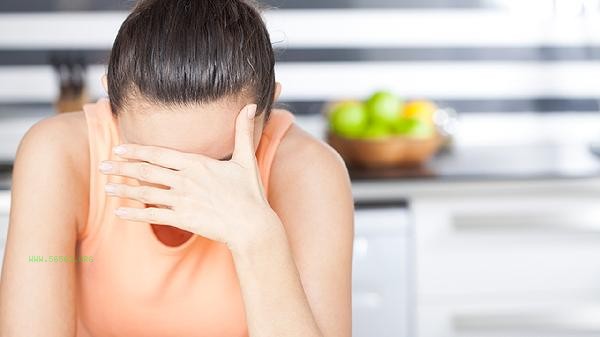Women can drink chrysanthemum tea, cassia seed tea, hawthorn tea, lotus leaf tea, Eucommia ulmoides tea, etc. in moderation to lower blood pressure. They can also follow the doctor's advice to use drugs such as Apocynum venetum tablets, Songling Xuemaikang capsules, Niuhuang hypotensive pills, Qingnao hypotensive tablets, Zhenju hypotensive tablets, etc. It is recommended that hypertensive patients seek medical attention in a timely manner, use medication in a standardized manner under the guidance of a doctor, and cooperate with dietary adjustments.

1. Food
1. Chrysanthemum tea
Chrysanthemum tea contains flavonoids that help dilate blood vessels and improve microcirculation. The chrysanthemum glycoside component in chrysanthemum can assist in regulating blood pressure and is suitable for patients with liver yang hyperactivity type hypertension to drink. It is recommended to choose Hangbai chrysanthemum or fetal chrysanthemum, with a daily dosage of 5-10 grams, and avoid drinking on an empty stomach.
2. Cassia seed tea
Cassia seed tea is rich in components such as emodin and cassia extract, and has the effects of clearing heat, improving vision, moistening the intestines, and promoting bowel movements. Its blood pressure lowering mechanism is related to regulating blood lipids and reducing vascular resistance. You can brew 10 grams of roasted cassia seeds in boiling water, 1-2 cups per day, and use with caution for patients with diarrhea. Hawthorn tea contains organic acids and triterpenoids, which can promote cholesterol metabolism and improve arterial elasticity. It is particularly suitable for hypertensive patients with concomitant hyperlipidemia. It is recommended to soak 6-12 grams of dried hawthorn slices in water, and reduce consumption for those with excessive stomach acid.
4. Lotus leaf tea
The alkaloids and flavonoids in lotus leaf tea can promote diuresis, eliminate sodium, and reduce vascular pressure. Suitable for hypertensive individuals with phlegm dampness constitution. Boil 15 grams of fresh lotus leaves or 3-6 grams of dried lotus leaves in water as a substitute for tea. Those with weak bodies should not take it for a long time.
5. Eucommia ulmoides tea
Eucommia ulmoides tea contains active ingredients such as Eucommia ulmoides gum and geniposide, which can lower blood pressure by regulating endothelial function. Especially suitable for menopausal women with hypertension. Take 5-8 grams of Eucommia ulmoides leaves daily for brewing, and use with caution for those with yin deficiency and excessive fire.
2. Medication
1. Apocynum venetum tablets
The main component of Apocynum venetum tablets is the extract of Apocynum venetum leaves, which is suitable for dizziness and vertigo caused by liver yang hyperactivity. This medicine can steadily lower blood pressure and improve headache symptoms. During medication, heart rate should be monitored, and it is contraindicated for those with bradycardia.
2. Songling Xuemaikang Capsules
Songling Xuemaikang Capsules contain ingredients such as fresh pine leaves and kudzu root, and are used for primary hypertension with neck pain. Has the function of regulating angiotensin. Mild gastrointestinal reactions may occur, pregnant women should use with caution.
3. Niuhuang Jiangya Pills
Niuhuang Jiangya Pills are composed of artificial Niuhuang, mother of pearl, etc., targeting high blood pressure caused by excessive liver fire. It can clear heat, calm the body, calm the liver, and retain yang. People with weak and cold constitution should not take it for a long time, and should avoid spicy food during medication.
4. Qingnao Jiangya Tablets
Qingnao Jiangya Tablets contain medicinal herbs such as Scutellaria baicalensis and Prunella vulgaris, and are suitable for hypertension with tinnitus and cerebral edema. Protect vascular endothelium through anti-inflammatory and antioxidant effects. Patients with renal insufficiency should reduce their use.
5. Zhenju antihypertensive Tablets
Zhenju Antihypertensive Tablets are a combination of traditional Chinese and Western medicine, containing wild chrysanthemum paste powder and clonidine hydrochloride. Used for mild to moderate hypertension, with quick onset of action. Attention should be paid to possible side effects such as dry mouth and drowsiness. Patients with hypertension should maintain a low salt and low-fat diet, with a daily intake of no more than 5 grams of sodium, in addition to choosing tea drinks reasonably. Engage in 3-5 aerobic exercises such as brisk walking and swimming per week, each lasting for at least 30 minutes. Ensure adequate sleep and avoid emotional excitement. Regularly monitor blood pressure and record it. If the systolic blood pressure continues to exceed 140mmHg or symptoms such as blurred vision and severe headache occur, seek medical attention immediately. Traditional Chinese medicine tea drinks cannot replace antihypertensive drugs, and all drug use must be guided by a cardiovascular specialist.









Comments (0)
Leave a Comment
No comments yet
Be the first to share your thoughts!